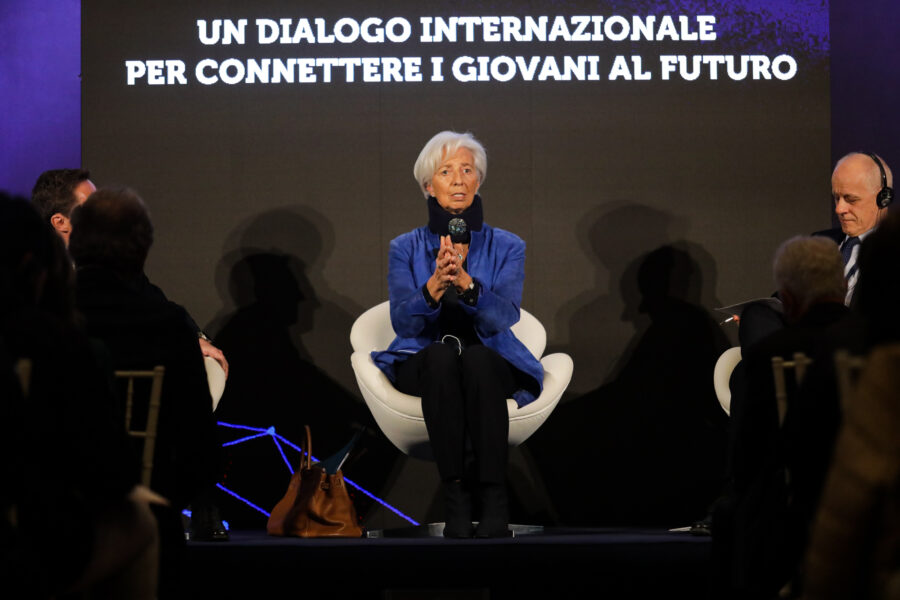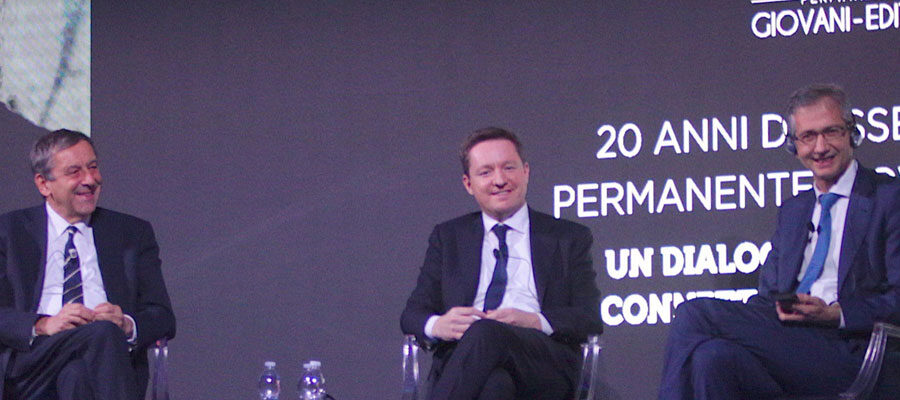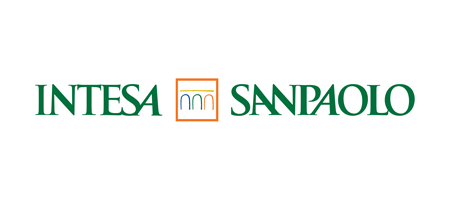In a Europe that has made the common currency the most powerful symbol of its aspiration for unity, economic and financial literacy has become an essential tool for strengthening the sense of European belonging in the younger generations and for encouraging their active participation, starting with the highest expression of any democracy: elections.
This was the driving spirit behind the 2025 edition of “Young Factor,” the event where the Osservatorio Permanente Giovani – Editori successfully brought together six central bankers from as many European countries—along with the Vice-President of the European Central Bank, Luis De Guindos; President Emeritus Jean-Claude Trichet; and top bankers such as Intesa Sanpaolo CEO Carlo Messina, UniCredit CEO Andrea Orcel, and UBS Group CEO Sergio Ermotti—with 360 secondary school students from Italy, France, Germany, Spain, Portugal, and the Netherlands.
This was a historic first, a unique event made possible by the launch of “Young Factor Europe,” the first economic and financial literacy project designed and created with the goal of educating the younger generations not only in the language of economics but also in the importance of actively participating in the life of the European Union, beginning with its institutions.
Young people’s disinterest in Europe’s common destiny is a genuine crisis, made clear by the dramatic abstention rate of under-25s in the 2024 European elections: a staggering 64%. It was in the face of this figure that the President of the Osservatorio, Andrea Ceccherini, raised a stark cry of alarm: “Where do we think we are going without our young people? Without their energy, their pace, their strength?”
“Young Factor Europe” aims to be a concrete answer to this question, with the objective of showing the young men and women of Europe that facing the complexity of our times, mastering its tools and languages, and living as active players—not just spectators—is what fills one’s life with meaning and satisfaction.
The “Young Factor Europe” project immediately gathered the support of the central bankers present at the international conference: Mário Centeno (Portugal), Klaas Knot (Netherlands), Joachim Nagel (Germany), Fabio Panetta (Italy), and François Villeroy de Galhau (France). Their participation was far from a formality; on the contrary, it was so heartfelt that it led them to record exclusive Masterclasses. These will be published on the “Young Factor Europe” digital platform and, starting from the next school year, will be available free of charge to students whose schools will join the project. The involvement of the central bankers, the prestige of the collaborations with universities and media partners, the fully digital format, and, last but not least, the fact that the platform is completely free make “Young Factor Europe” an extraordinary growth opportunity for young Europeans.
The project was officially launched during the three-day event in Milan—held, fittingly, at Palazzo Mezzanotte, the headquarters of the Italian Stock Exchange (Borsa Italiana). It will begin with a pilot phase in six countries: Italy, France, Germany, the Netherlands, Portugal, and Spain, before gradually expanding to the other EU member states.
“Our goal with Young Factor Europe,” added Andrea Ceccherini, “is to offer students, over the course of a five-year school period, a vocabulary of 50 key words in economics and finance. This will give them access to what we now consider the most spoken language in the world: economics. We want this to become an increasingly familiar language for you young Europeans.”
The Round Table that launched “Young Factor Europe” was undoubtedly the pinnacle of the international conference, but it was certainly not the only moment where the 360 European students proved they were the real stars of the event.
It was they, in fact, who posed the most targeted, knowledgeable, and, in many cases, challenging questions to the Governors, the ECB Vice-President and former President Trichet, and the other speakers who took to the stage.
From the digital euro to cryptocurrency regulation, from tariffs to interest rates, and on to the banking union, protectionism, the green transition, global trade, rearmament, and the strategic challenges of the European Union—with their questions, the young men and women of the “Young Factor Generation” showed they have the desire and ability to be part of society and to participate with knowledge and conviction.
As long as they are engaged in the ways, with the tools, and at the speed of their generation.
This is the deepest and most concrete spirit with which the Osservatorio Permanente Giovani-Editori intends to contribute, through Young Factor Europe, to the change that Europe must face now, without hesitation or reluctance. It is a spirit that emerged clearly and forcefully from the international conference, which gave a voice to those young Europeans who represent the true future of the Union.





